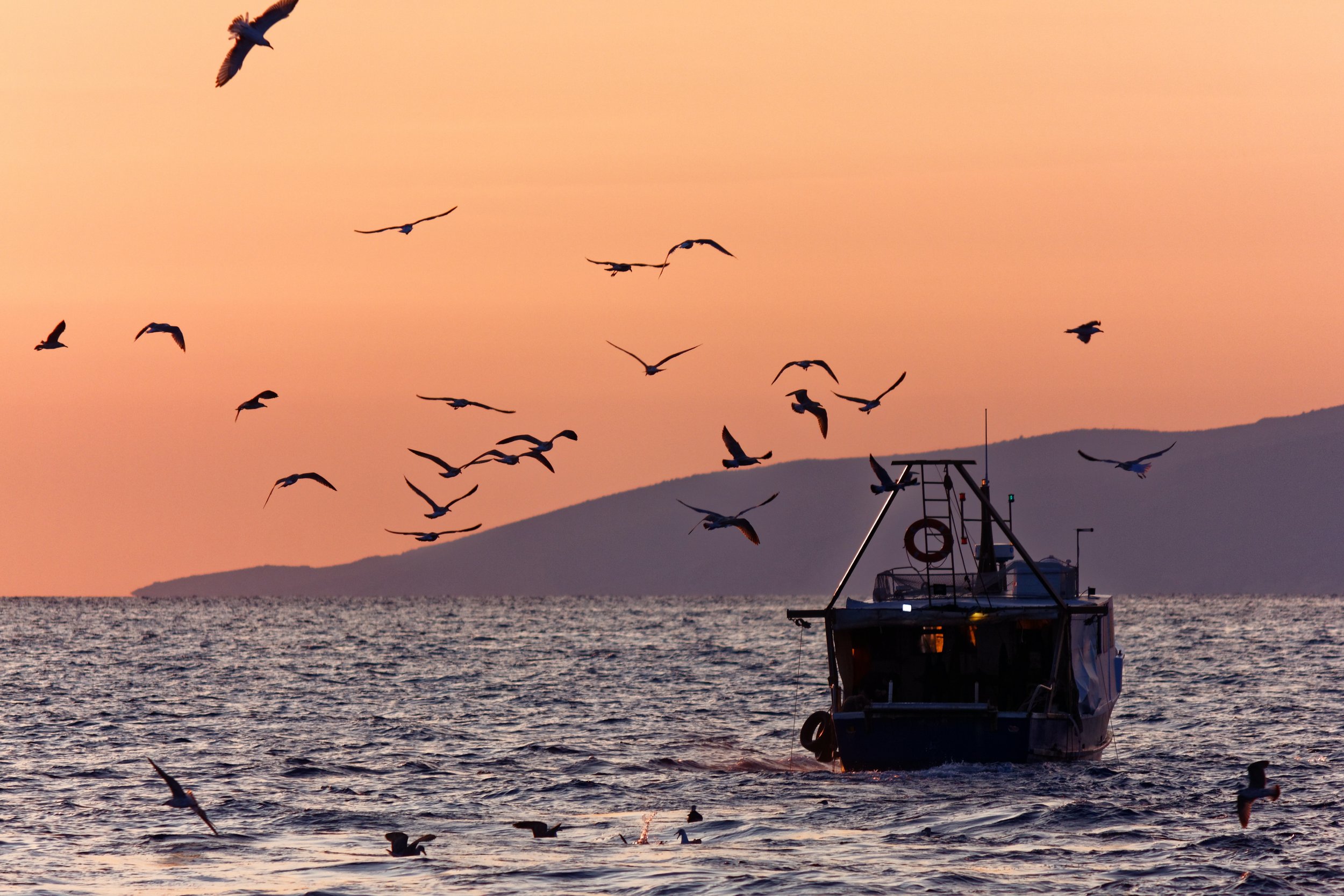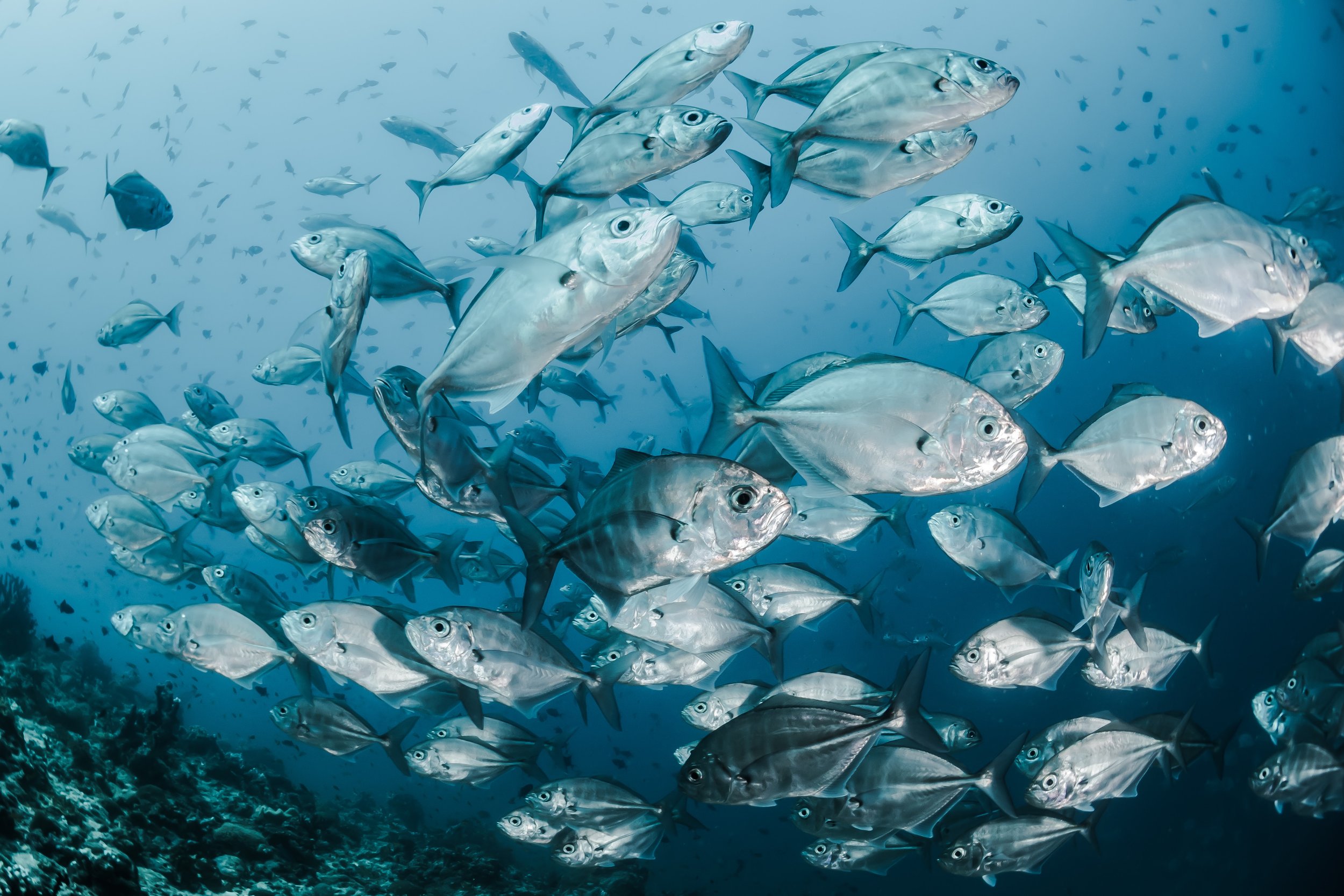
About Sea Pact
Back in 2013, six U.S. and Canadian seafood distributors came together to discuss the exciting new commitments, policies, and initiatives being adopted by their customer base around responsible seafood sourcing and sustainability.
To best support and amplify this progress, as well as further contribute to innovation in the sector, these distributors decided to collaborate and pre-competitively invest in sustainability projects. To accomplish this, they worked closely with two NGOs—Sustainable Fisheries Partnership (SFP) and FishWise—to establish Sea Pact.
While the early years of Sea Pact focused primarily on project funding, as the organization evolved and grew, industry members sought to grow their collective impact through an issue-based focus for transformational change. They identified and adopted three strategic priorities:
1. Sector-based Sustainability Improvements: Addressing a sustainability challenge found across a specific seafood sector.
2. Responsible Aquaculture: Supporting innovations contributing to responsible aquaculture production with a focus on North America.
3. Social Responsibility: Supporting Sea Pact members’ own social responsibility efforts as well as engaging seafood supply chains in addressing social responsibility.
Today, Sea Pact has 11 members across the U.S. and Canada and is supported by three NGO advisors: FishWise, Ocean Outcomes, and SFP, as well as our fiscal sponsor, Multiplier.

Guiding Principles
Support a model of continuous improvement for fisheries and aquaculture farms.
Publicly state our goals for reaching more responsible seafood supply and monitor and measure our progress towards our goal.
Engage our peers and our supply chain in discussion and action around continuous improvement.
Support each other’s efforts to educate our individual staff, customers and supply chain about our responsible seafood initiatives.
Utilize our collective purchasing power in a pre-competitive nature to engage in improvement efforts.
Financially contribute to continuous improvement of those fisheries and fish farming systems we procure from.
Consider the impact on communities when making sourcing decisions.
Engage in and support policy and management reform that leads to positive environmental and social outcomes in fisheries and aquaculture management.












